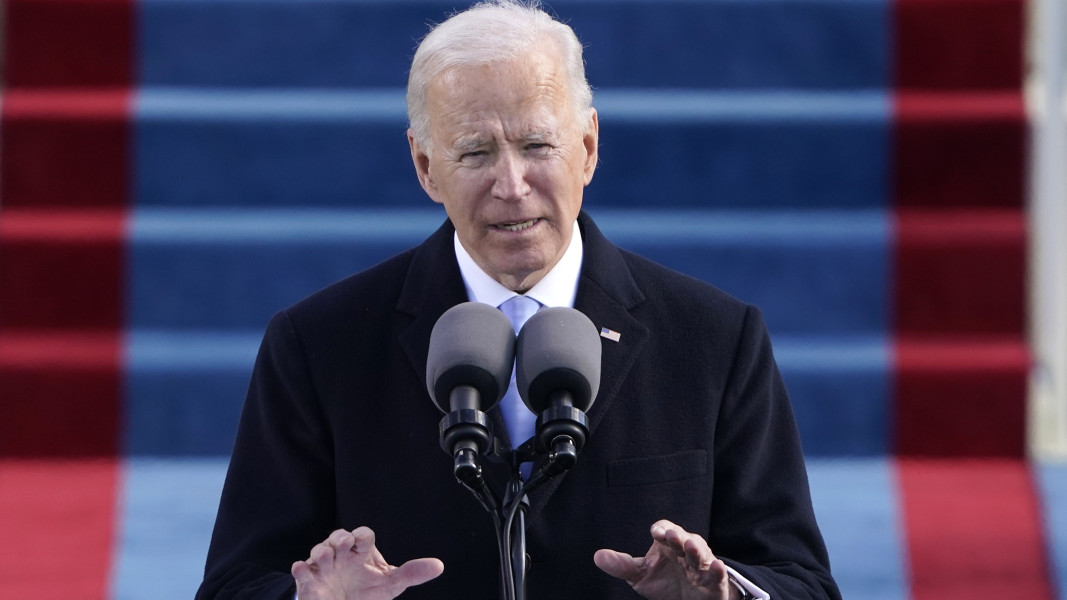So what if Biden didn’t call President Buhari
On winning the election, late last year, to become the US President, Joe Biden embarked on a telephone diplomacy reaching out to world leaders. In Africa he talked to Presidents of South Africa Cyril Ramaphosa and Kenya, Uhuru Kenyatta. Commentators stretched the significance of how Nigeria’s President Buhari missed out and believed that we were […]

U.S President, Joe Biden
On winning the election, late last year, to become the US President, Joe Biden embarked on a telephone diplomacy reaching out to world leaders. In Africa he talked to Presidents of South Africa Cyril Ramaphosa and Kenya, Uhuru Kenyatta. Commentators stretched the significance of how Nigeria’s President Buhari missed out and believed that we were snubbed. My colleague and a friend of this page, Ambassador Usman Sarki, in a short piece debunked all these insinuations. Usman Sarki has served as Nigeria’s Ambassador to a number of countries retiring as our deputy envoy to the United Nations. He is now a Directing Staff in the National Institute of Policy and Strategic Studies, Kuru. I agree with him and that’s why I am sharing it with the readers:
- Victimisation: We may go on strike again, ASUU warns
Despite N134bn allocation, senators, reps seek more funds
“Recently, some commentators have pointed out to the incident where the US President made some telephone calls to leaders around the world. Nigeria was not among those countries that received the “all high and mighty” phone call. On account of that, commentators jumped to conclusion (with the usual precipitation and joy), that Nigeria had become insignificant in the world. I say, the importance of a country is not bestowed from outside by others, but is a self-generating factor that evolves with the internal dynamics of the country in question. Nigeria is just too great a country, and too important an entity, for it to be judged by a mere telephone call from a foreign leader, no matter how exalted that leader might be.
To my humble mind, the love of country is not contingent upon who is in power at any given time, and whether I have an affinity with the leadership or not. My sense of pride in my country should stem from a biological attachment to it, and a historical basis from which I draw the sentiment of belonging to that entity, which nothing should erode or call into doubt. As far as I am concerned, nothing on this earth will make me denigrate my country and call into question its significance.
I can recall the answer that I gave an American journalist in New York at a diplomatic reception who asked me why President Obama did not visit Nigeria although he came to Ghana, and whether that meant Nigeria was not important to the United States. My answer to him simply was that we did not deem it important to invite President Obama to our country, and that explained why he could not pay a visit!
The journalist was stunned, but accepted the situation and no longer viewed the matter with condescension. I could have accepted his assessment of my country at the time and remained secretly happy that we have become insignificant because the person in power at that time, President Jonathan, was from a different part of the country from where I came. Rather, I acted as a Nigerian who was sent abroad by that President to serve him loyally and to protect his dignity and my country’s integrity.
Similarly, in the case of this “all high and mighty” telephone call which I view as being neither here nor there in the overall consideration of Nigeria’s place in the world, should be viewed as insignificant really. The USA is perhaps looking to develop clientele situations in Africa and Nigeria might not fit into their strategic calculations of military bases, or deployment of drones. Nigeria might not also be the place for their predatory corporate interests that seek to exploit our resources wantonly and ride rough shod over us.
I think it bears reminding that we are an ancient people with values to protect and the ability to motivate and provide leadership to other peoples and nations especially in Africa. By constantly denigrating our country and attacking our leadership regardless of where it sprung from, we are calling into question that ability, and putting in doubt that historical destiny bestowed upon us by Providence.
If our own diplomats could view and judge their country’s worth on the basis of the merit of a few minutes’ discussion with a foreign leader, then it becomes a lamentable situation that requires repudiation and immediate discountenancing. I cannot for the life of me reduce the greatness of my country to the level of judging it from a foreigner’s perspective. As a diplomat and retired Ambassador who has served his country in privileged circumstances, I should be able to draw up my own criteria for judging my country and placing it on the scale of global importance devoid of a sense of subservience to foreign sentiments or inferiority complex towards it.
The last thing that I would do is to equate the love of my country with the circumstance of power that is obtaining at any given moment in my country. Regardless of who is leading the country, I should not pass judgement on my country and bring it down because I am of a different mould from the leadership. The absence of a phone call from another country to mine should not make me question the integrity of my President for that matter. I would think that he is just too preoccupied with other weightier matters than waiting to receive one momentary telephone call, that neither adds to, nor reduces the burden of leadership and the opportunity for greatness of my country.”
